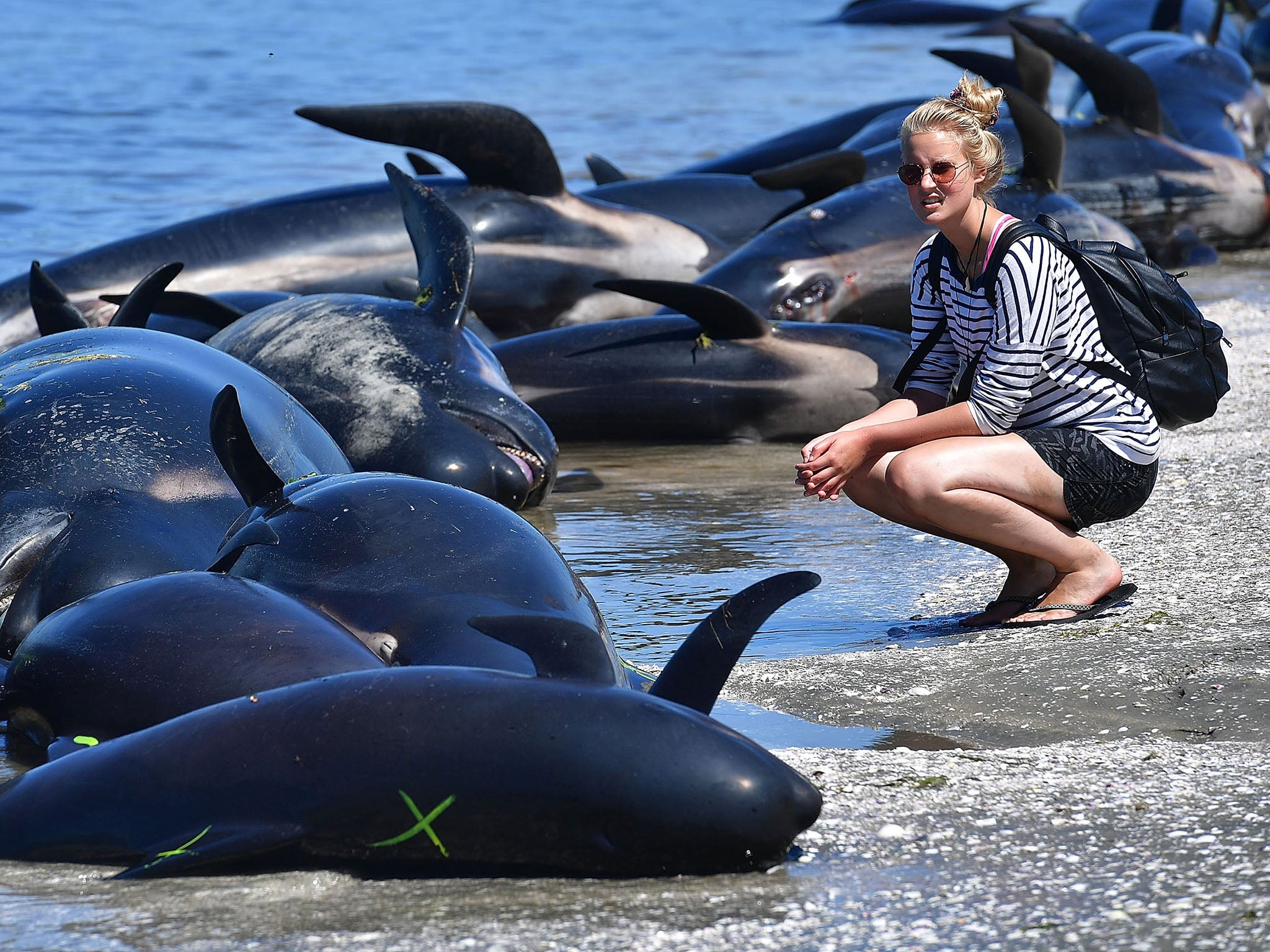New Zealand whales: Hundreds more stranded despite volunteers forming human chain to save pod
A super-pod of 200 whales have joined the original group which became stranded in New Zealand

A super-pod of 200 whales has become stranded on a remote beach in New Zealand - hours after volunteers had managed to refloat dozens of the creatures who had already become beached.
The country witnessed one of the worst beachings in its history on Thursday when a pod of 416 pilot whales washed up on a shore on Farewell Spit in Golden Bay.
Located on the remote beach at tip of the South Island, around 300 were already dead. On Saturday rescuers managed to refloat the remaining survivors at high tide, but adding to the crisis a further 200 whales from a ‘super-pod’ had gathered off-shore and joined up with the group.
In a last ditch attempt to save the whales volunteers formed a human chain to guide the initial group back out to sea and to prevent the new pod from facing a similar fate.
More than 100 volunteers waded into neck-deep water to form a barrier, braving predators and the elements, in the hope of encouraging what is left of the group to swim into deeper water.
DOC spokesman Herb Christophers said: “In spite of best efforts by everyone to prevent further losses, the large pod of approximately 200 pilot whales that were free-swimming, have stranded.
"We may salvage some of the stranded whales.
"Even when some whales are saved, they may still restrand as has happened in this instance and prolongs the effort and reduces the chances of success."
He added that 20 whales from the initial group had ben euthanised "out of concern for their welfare.”
The super-pod of pilot whales, the most common species in New Zealand waters, was spotted less than two miles away from where the initial group became stranded.
Daren Grover, the general manager of environmental group Project Jonah which is assisting with the rescue, said: "We don't know why the super pod came in.
Dead whales beached on the North Sea coast
Show all 8"They may have been picking up some calls from the whales here and come in to respond.
"It's very unusual, not something we have seen before," RTE reported.
There are several theories as to why the whales beached in the first place along the shore, which has been described as a whale trap.
Its long coastline means the creatures often find it difficult to navigate away from, but whales often end up stranded when they chase prey too far inland, try to protect a sick member of their pod or when they are fleeing enemies.
One of dead whales appears to have bite marks consistent with a shark bite.
DOC ranger, Mike Ogle, also indicated a shark may have the cause of the mass beaching.
He told local radio: "There's one carcass out there with some shark bites in it - but not a big one, just a small one, but quite fresh bites so yeah, there's something out there."
The town now faces the arduous task of disposing of hundreds of whale carcasses, which now litter the beach.
The tragedy is the third largest beaching in the country’s history, but the bay has seen at least nine mass beachings in the past decade alone.
The highest ever recorded was in 1918 when around 1,000 became stranded on Chatham Islands.
Subscribe to Independent Premium to bookmark this article
Want to bookmark your favourite articles and stories to read or reference later? Start your Independent Premium subscription today.

Join our commenting forum
Join thought-provoking conversations, follow other Independent readers and see their replies